Norikazu Sugimoto
Goal-Conditioned Terminal Value Estimation for Real-time and Multi-task Model Predictive Control
Oct 07, 2024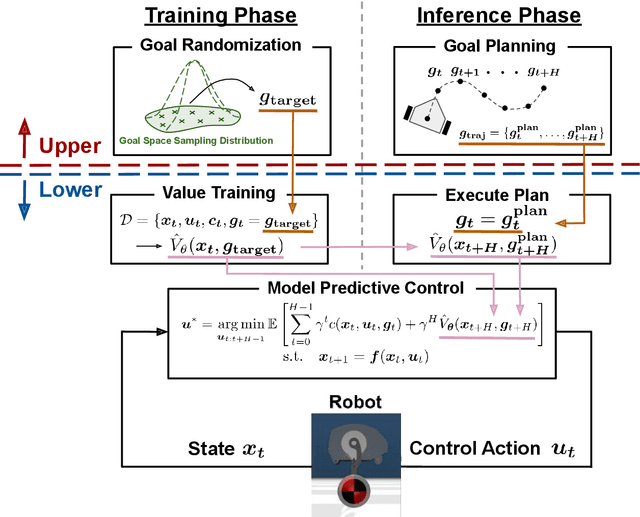

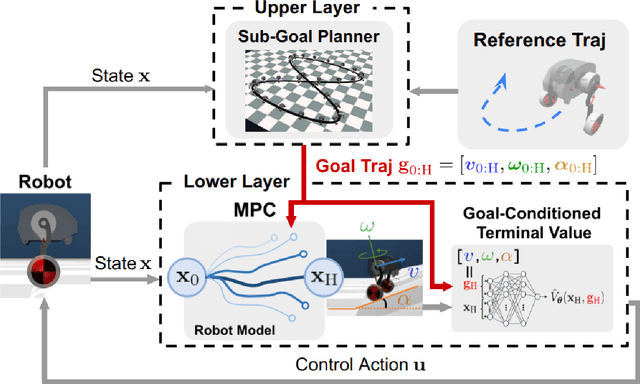
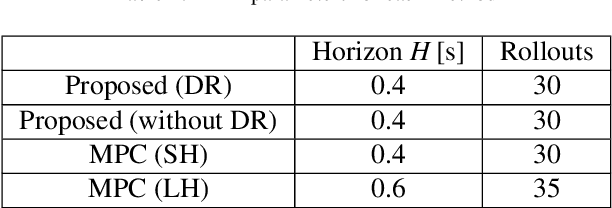
Abstract:While MPC enables nonlinear feedback control by solving an optimal control problem at each timestep, the computational burden tends to be significantly large, making it difficult to optimize a policy within the control period. To address this issue, one possible approach is to utilize terminal value learning to reduce computational costs. However, the learned value cannot be used for other tasks in situations where the task dynamically changes in the original MPC setup. In this study, we develop an MPC framework with goal-conditioned terminal value learning to achieve multitask policy optimization while reducing computational time. Furthermore, by using a hierarchical control structure that allows the upper-level trajectory planner to output appropriate goal-conditioned trajectories, we demonstrate that a robot model is able to generate diverse motions. We evaluate the proposed method on a bipedal inverted pendulum robot model and confirm that combining goal-conditioned terminal value learning with an upper-level trajectory planner enables real-time control; thus, the robot successfully tracks a target trajectory on sloped terrain.
Efficient Reuse of Previous Experiences to Improve Policies in Real Environment
May 10, 2014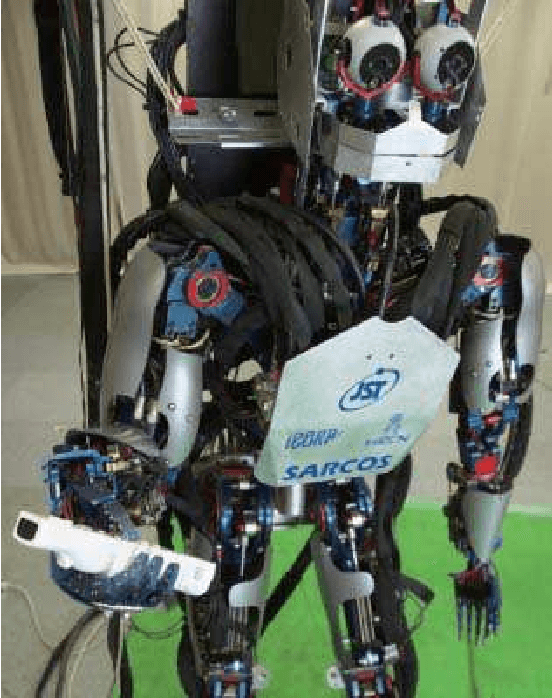
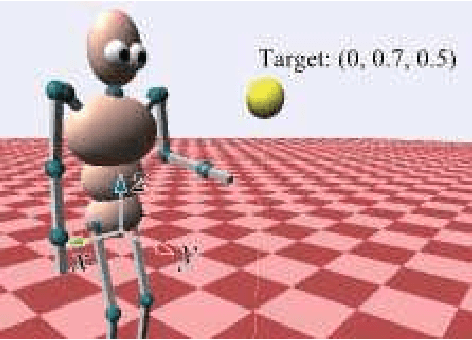
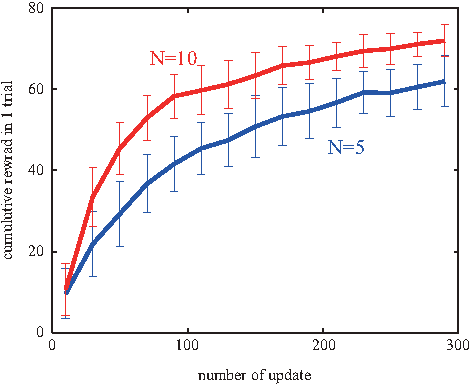
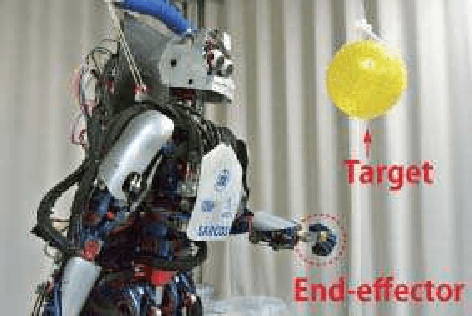
Abstract:In this study, we show that a movement policy can be improved efficiently using the previous experiences of a real robot. Reinforcement Learning (RL) is becoming a popular approach to acquire a nonlinear optimal policy through trial and error. However, it is considered very difficult to apply RL to real robot control since it usually requires many learning trials. Such trials cannot be executed in real environments because unrealistic time is necessary and the real system's durability is limited. Therefore, in this study, instead of executing many learning trials, we propose to use a recently developed RL algorithm, importance-weighted PGPE, by which the robot can efficiently reuse previously sampled data to improve it's policy parameters. We apply importance-weighted PGPE to CB-i, our real humanoid robot, and show that it can learn a target reaching movement and a cart-pole swing up movement in a real environment without using any prior knowledge of the task or any carefully designed initial trajectory.
 Add to Chrome
Add to Chrome Add to Firefox
Add to Firefox Add to Edge
Add to Edge